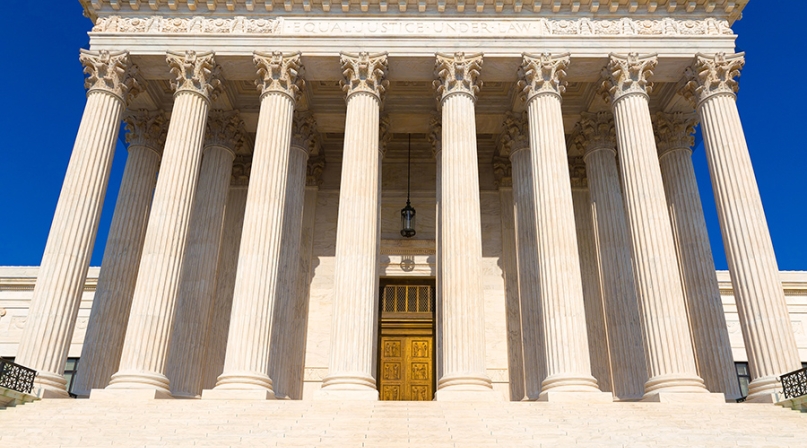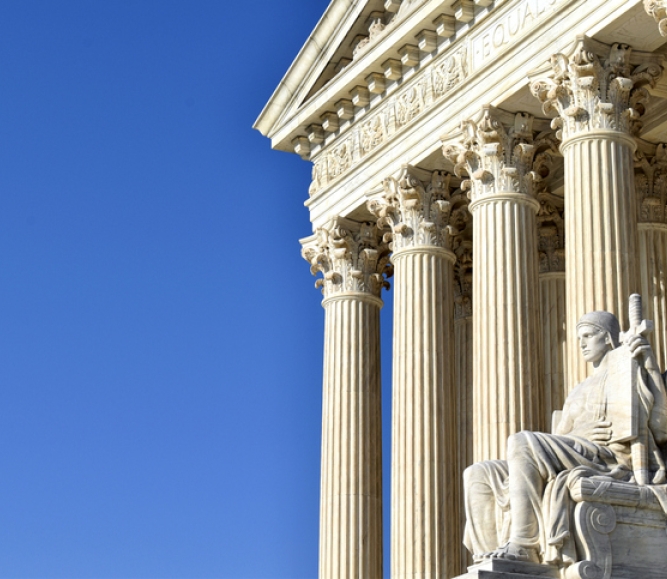Supreme Court’s Trump v. Casa, Inc. ruling limits use of nationwide injunctions: what this means for counties
Author

Paige Mellerio

Julia Cortina

Joe Jackson
Upcoming Events
Related News

Key Takeaways
On June 27, the U.S. Supreme Court issued a 6-3 decision in Trump v. Casa, Inc. limiting federal district court judges' ability to issue universal injunctions to prevent federal policies from going into effect nationwide. In the majority opinion, authored by Justice Amy Coney Barrett, the Supreme Court asserts that “universal injunctions likely exceed the equitable authority that Congress has given to federal courts” but only in cases where the injunctions went further than needed to provide relief to the parties who sued. At the federal level this ruling represents a shift of power from the federal courts to the executive branch but will impact counties’ ability to challenge executive actions and rulings through federal courts.
How did we get here?
Trump v. Casa, Inc. began as a challenge to the legality and merits of the January 2025 Executive Order (EO) 14160 (Protecting the Meaning and Value of American Citizenship) that would limit the circumstances in which birthright citizenship is granted. After 22 states and other groups sued the Administration over the EO, three separate district court justices issued universal, injunctions preventing the EO from going into effect nationwide. After the federal courts of appeals declined to stay these injunctions, in March 2025 the administration filed an emergency appeal to the Supreme Court to weigh in on the use of universal injunctions. Oral arguments were heard in May 2025.
Did the Supreme Court rule on the merits of the executive order?
No. The Supreme Court’s decision narrowly focused on the use of universal injunctions. The Supreme Court at this time did not weigh in on the merits of the EO or provide opinion on birthright citizenship, but they did prevent the EO from going into effect for another 30 days, leaving time for more legal challenges to arise.
How does this impact counties?
While there remains an outstanding argument that states who file seeking injunctive relief require a universal injunction for complete relief, it is unclear whether a similar principle applies for counties. As such, counties seeking relief from executive action may not be able to obtain an injunction that applies beyond those who are directly involved in a case. Further exploration of this question will be particularly relevant for counties as it relates to ongoing litigation regarding the termination of federal grants. Other legal approaches to seek relief from federal actions, such as class action lawsuits, may become more commonplace as counties pursue judicial remedies to executive actions.
NACo will continue to provide additional information as legal proceedings continue in the lower courts.
Related News

House Agriculture Committee introduces 2026 Farm Bill
On February 13, House Agriculture Committee Chairman G.T. Thompson (R-Pa.-15) introduced the House version of the 2026 Farm Bill, the Farm, Food, and National Security Act of 2026.

U.S. House passes final minibus funding package
Congress introduced the final FY 2026 Appropriations package, including key county priorities related to transportation, housing, health, emergency management and public safety
Featured Initiative
Supreme Court Advocacy Hub

